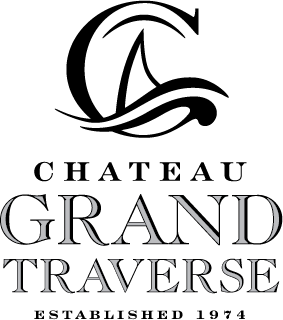SUSTAINABILITY IN THE WINE INDUSTRY AND AT CGT
We live in one of the most beautiful places in America, surrounded by fresh water and natural environments calling out for exploration. The surroundings we’re lucky enough to enjoy need to be taken care of and properly sustained for the future – and we strive to do our part.
In honor of Earth Day, we wanted to share a little bit about sustainability in the wine industry and some of the things we do at Chateau Grand Traverse to ensure the sustainability of our wines.
Sustainability in the Wine Industry
While wines labeled Certified Organic are few and far between, most wineries participate in at least some ways to bring sustainability to their vineyards and their winemaking. Many of these efforts are directed at ways to decrease water and energy use, maintain healthy soils naturally and to preserve air and water quality in the areas surrounding the vineyard and winery.
The winemaking process concentrates the flavors in grapes as it ferments – and the same applies to anything else introduced to the wine – meaning that the fewer the chemicals in the vineyard and winery, the easier it is to make better-tasting wines.
Sustainability at Chateau Grand Traverse
Our team is thankful to act as stewards to a significant swath of land throughout Old Mission Peninsula, and we take seriously our responsibility to reduce our impact and protect this area for future generations.
Here are just a few of the things we do to contribute to sustainability at the winery and in the vines:
- Cover Cropping
Planting carefully selected grasses and grains before we plant new vines and in transition areas throughout the vineyard naturally builds healthier soils. Cover crops also provide protection from erosion and create great habitat for beneficial insects.
- Composting
The winemaking process creates a significant amount of organic waste in the form of grape pulp. Rather than trucking it to the landfill, we compost this waste to turn it into valuable nutrients for our vineyards. Between our own compost and the composted manure we purchase locally, the soil in our vineyards is strengthened each year with natural organic material rather than man-made commercial fertilizers. By decreasing the waste we create and enriching our soil in a way that is healthy for the Great Lakes water surrounding our vineyards, our use of compost does double duty to protect the environment.
- Creating Bird Habitat
To attract birds and bats to the area and maintain great habitat for them, we have bird boxes throughout our vineyards. Not only does this create habitat, the predator species of birds we attract provide an organic and natural process to manage rodents throughout the vineyards.
- Compostable Dishes
We only use compostable dishes on our patio to help decrease the plastic waste created by the winery, keeping plastics out of our beloved waters.
- A Chemical-free Winery
In the winery, we’re committed to keeping chemicals out of our cleaning processes, for the sake of our beloved water and making better wines! We use hot or ozonated water, steam and pressure washing to sanitize all our winemaking equipment. We’ve also built positive pressurized rooms and implemented practices to keep our facility clean in order to naturally control fruit flies and other pests.
Consuming Wine Sustainably
Want to do your part at home? Consider what sustainability efforts are taken on by the wineries you support. When you visit one, ask questions to get a better sense of what they’re doing to protect this incredible place we call home.
Reducing and reusing your waste is a better option than recycling in protecting our environment, so consider some of our favorite crafts to use your corks and wine bottles rather than recycling them. We love making a wine bottle ring toss game and all sorts of crafts with our corks!
If you’re drinking CGT wine at home, you can rest assured we’re doing our part to be sustainable. If you want to take it one step further, choose bottles from our Wines of the Great Outdoors line. We created these three wines in partnership with the Michigan Department of Natural Resources, and a portion of the proceeds is donated to Michigan’s state parks, trails and waterways.



